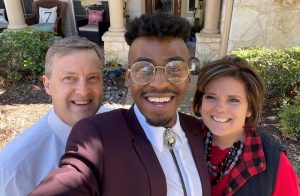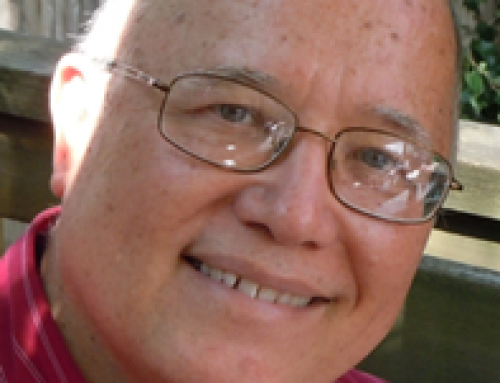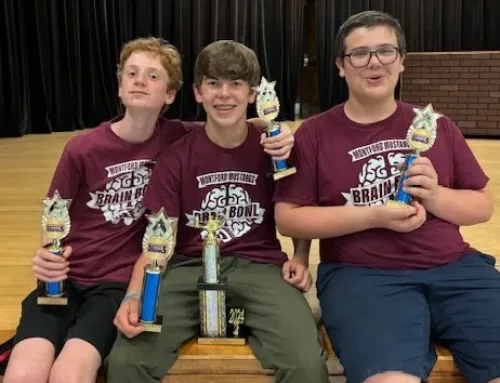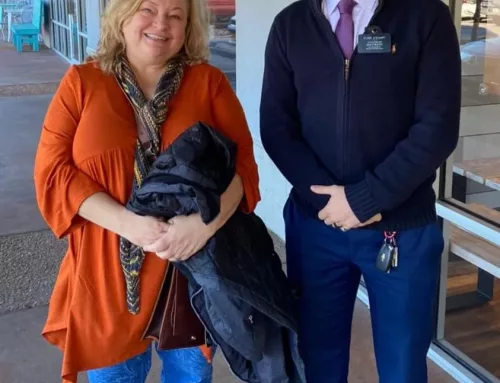Estimated reading time: 5 minutes
Ross Penrod moved to Tallahassee specifically to work as the onsite project manager for the construction of the Tallahassee Florida Temple of The Church of Jesus Christ of Latter-day Saints. Upon their arrival he and his wife, Tangi, and son, Takoryon (“Kory”), became members of the Tallahassee Second Ward, a local congregation of that faith.
Noting that Kory was a “pandemic high school graduate” who is now taking college classes, Penrod said the relocation from Lantana, Texas, was seamless and that the family is happy about being in Tallahassee.
“We love it—it’s great!” he said. “It’s always been a goal to work on a temple project and, knowing I may not have many chances like this, we took advantage of the opportunity when it came around. It also puts us closer to children and grandchildren in the Atlanta area.”
He pointed out that, professionally, the project involved a shift in focus. “It was definitely a role change but a positive one,” he said. “It’s a unique project for me and for our company.”
Penrod’s company is Parkway C&A, LP, of Lewisville, Texas, for which he has been a project manager for the last five years. The firm’s emphasis is commercial construction—which includes retail, hotels, schools, gas stations, and other light commercial projects. Parkway is presently building two other temples “from the ground up”—Bentonville, Arkansas, and McAllen, Texas—and doing “multiple other temple renovations,” according to Penrod.
In his own career, Penrod has 13 years of experience with Church meetinghouse construction and renovations. “I’ve done about 100 projects involving meetinghouses,” he said, “but this is my first temple.”
Building projects don’t always have onsite project managers (PM), he explained, but most temple projects do. As senior PM overseeing multiple PMs, he is the overall supervisor of building operations and daily activity. He is responsible for many functions: contract negotiations and execution of contract documents; working with onsite staff, the project superintendent, assistant PMs, and quality control people; financial matters; and comprehensive scheduling and review.
Fellow Church members Ryan Partridge (superintendent) and Sean Larson (assistant PM) also moved to Tallahassee for the temple project—Partridge from Texas and Larson from Atlanta. Robert Byas, quality control officer, travels from Macon, Georgia, to be here during the week and goes home on weekends.
Each temple requires a high level of quality in its construction, Penrod explained, adding, “we expect the best performance out of each trade.”
Expertise and skill are particularly important when projects present obstacles. “This temple site is on a hill,” he said, “so it’s a little more complicated and demanding—we have to build it up in places by using retaining walls. We do love a challenge!”
A part of the process he particularly enjoys, he said, is acquainting people with the specialness of temples and their construction. “It changes other people as we bring them onboard and explain that it’s like Solomon’s temple in the Old Testament.”
He referred to the scripture in the Bible in which David instructs Solomon about the particulars of its construction. “People appreciate it when we look at the specifications and level of detail in our building and compare those things to Solomon’s temple,” he said.
Another factor differentiating the temple project from others is that all planning meetings begin with prayer, Penrod said. Attended by subcontractors and architects, these are frequent meetings in which many faiths are represented, and everyone takes turn praying. “There’s a unity in this, and people appreciate that we try to elevate the project to a different plane. A lot of positive things have been happening through this unity.”
He recounted the feeling that, from the outset, blessings have been bestowed upon the temple-building efforts. “It’s awesome to witness the hand of the Lord in His work,” he said. “We absolutely see it.”
The very first day provided an example. For the crew to cut down trees, Penrod said dry weather was needed so equipment could have the most stability, allowing trees to fall in the safest manner. “It was pouring rain a couple of miles away, but radar showed this little spot right over Thomasville Road that had no rain. It was our site.”
“It’s very interesting to see those kinds of events,” he concluded. “The Lord is watching over us, getting us off on a good foot. There are many prayers being said every day by members, and we can feel we’re being prayed for. So, I encourage people to continue those prayers—they’re needed and appreciated.”






